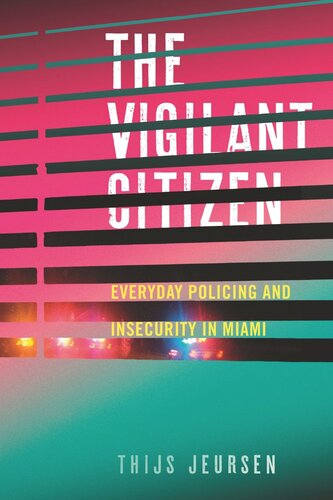

Most ebook files are in PDF format, so you can easily read them using various software such as Foxit Reader or directly on the Google Chrome browser.
Some ebook files are released by publishers in other formats such as .awz, .mobi, .epub, .fb2, etc. You may need to install specific software to read these formats on mobile/PC, such as Calibre.
Please read the tutorial at this link: https://ebookbell.com/faq
We offer FREE conversion to the popular formats you request; however, this may take some time. Therefore, right after payment, please email us, and we will try to provide the service as quickly as possible.
For some exceptional file formats or broken links (if any), please refrain from opening any disputes. Instead, email us first, and we will try to assist within a maximum of 6 hours.
EbookBell Team

5.0
68 reviewsHow the problematic behavior of private citizens—and not just the police force itself—contributes to the perpetuation of police brutality and institutional racism
“Warning: Neighborhood Watch Program in Force. If I don’t call the police, my neighbor will!”
Signs like this can be found affixed to telephone poles on streets throughout the US, warning trespassers that the community is an active participant in its own policing efforts. Thijs Jeursen calls this phenomenon, in which individuals take on the responsibility of defending themselves and share with the police the duty to mitigate everyday insecurity, “vigilant citizenship.”
Drawing on eleven months of fieldwork in Miami and sharing the stories and experiences of police officers, private security guards, neighborhood watch groups, civil society organizations, and a broad range of residents and activists, Jeursen uses the lens of vigilant citizenship to extend the analysis of police brutality beyond police encounters, focusing on the often blurred boundaries between policing actors and policed citizens and highlighting the many ways in which policing produces and perpetuates inequality and injustice. As a central premise in everyday policing, vigilant citizenship frames racist and violent policing as matters of personal blame and individual guilt, ultimately downplaying the realities of how systemically race operates in policing and US society more broadly.
The Vigilant Citizen illustrates how a focus on individualized responsibility for security exacerbates and legitimizes existing inequalities, a situation that must be addressed to end institutionalized racism in politics and the justice system.